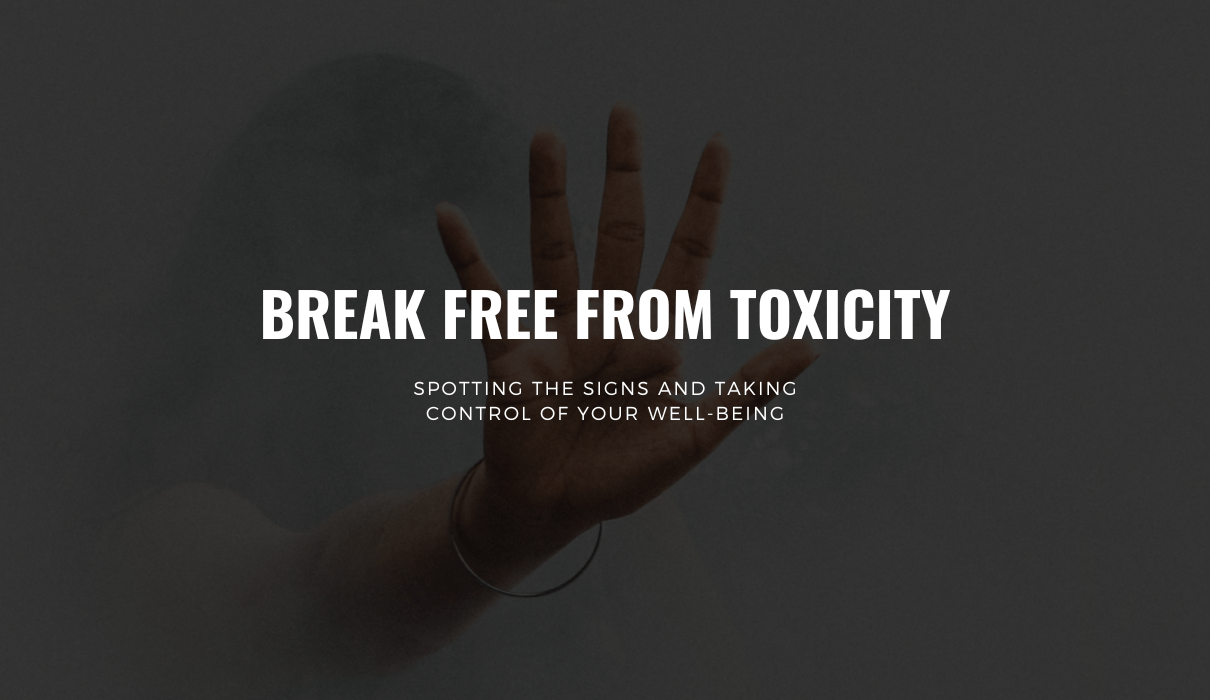In life, we encounter a diverse range of individuals, some of whom may have a negative impact on our well-being. Toxic people can drain our energy, manipulate our emotions, and hinder our personal growth. Recognizing and dealing with toxic relationships is essential for fostering a healthy and fulfilling life. In this comprehensive guide, we will explore the signs of toxic behavior, provide insights into the psychology of toxic people, and offer practical strategies for managing and removing toxic influences from our lives.
You can’t change toxic people, but you can change how you react and protect yourself from their toxicity.
Toxic No More
- Understanding Toxic Behavior
Toxic behavior encompasses a wide range of negative traits, including manipulation, aggression, constant criticism, excessive negativity, and a lack of empathy. It is important to recognize that toxic behavior is not a reflection of your worth but rather a reflection of the individual exhibiting it. Understanding the patterns and dynamics of toxic behavior can empower us to take necessary steps to protect ourselves. - Recognizing Toxic People
Spotting toxic people can be challenging, as they often hide their negative traits behind a facade of charm or charisma. However, there are red flags that can help us identify toxic individuals. These may include a constant need for control, frequent conflicts or drama, manipulative tactics, a lack of accountability, and a tendency to drain your energy and self-worth. - The Impact of Toxic Relationships
Toxic relationships can have a detrimental effect on our mental, emotional, and physical well-being. They can erode our self-esteem, breed self-doubt, and disrupt our sense of stability. Being in the presence of toxic people can cause chronic stress, anxiety, and even depression. Recognizing and addressing toxic relationships is vital for our overall health and happiness. - Setting Boundaries
Establishing healthy boundaries is crucial when dealing with toxic people. Clearly define what behavior is acceptable and what is not, and communicate these boundaries assertively but respectfully. Be prepared to enforce these boundaries by distancing yourself or even severing ties if necessary. Remember, setting boundaries is an act of self-care and self-respect. - Practicing Self-Care
Self-care is essential for maintaining emotional well-being in the face of toxic relationships. Nurture yourself by engaging in activities that bring you joy, practicing mindfulness, exercising regularly, and seeking support from trusted friends or professionals. Prioritizing self-care strengthens your resilience and helps you navigate toxic environments with greater clarity and strength. - Seeking Support
Dealing with toxic people can be emotionally challenging, and seeking support from trusted individuals is crucial. Surround yourself with a strong support system of friends, family, or therapists who can provide guidance, validation, and a safe space to share your experiences. Seeking support helps you gain perspective, process your emotions, and make informed decisions about dealing with toxic relationships. - Implementing Effective Communication Strategies
Communicating effectively with toxic individuals requires a strategic approach. Maintain your composure, clearly express your boundaries, and avoid engaging in confrontations or power struggles. Practice active listening, assertiveness, and empathy while setting limits on the amount of time and energy you invest in toxic conversations. - Practicing Emotional Detachment
Emotional detachment is a valuable tool when dealing with toxic people. This involves consciously distancing yourself emotionally from their negative behaviors and refusing to internalize their toxic narratives. Remember, you cannot control or change their behavior, but you can control your reactions and protect your own well-being. - Pursuing Personal Growth
Focus on your personal growth and development to counteract the negative effects of toxic relationships. Invest time and energy in activities that empower and inspire you. Engage in hobbies, pursue educational or professional goals, and surround yourself with positive influences. Personal growth helps build resilience, boosts self-esteem, and provides a sense of purpose and fulfillment. - Knowing When to Let Go
Sometimes, despite our best efforts, toxic relationships cannot be salvaged. Recognize when a relationship is beyond repair and be willing to let go. Prioritize your well-being over maintaining toxic connections. Understand that by severing ties, you are creating space for healthier relationships to enter your life.
Dealing with toxic people requires courage, self-awareness, and a commitment to personal well-being. By recognizing the signs of toxic behavior, setting boundaries, practicing self-care, seeking support, implementing effective communication strategies, practicing emotional detachment, pursuing personal growth, and knowing when to let go, you can free yourself from the damaging effects of toxic relationships. Remember, you deserve to be surrounded by positivity, respect, and love, and by cultivating healthy connections, you can create a life filled with joy, growth, and authentic relationships.

